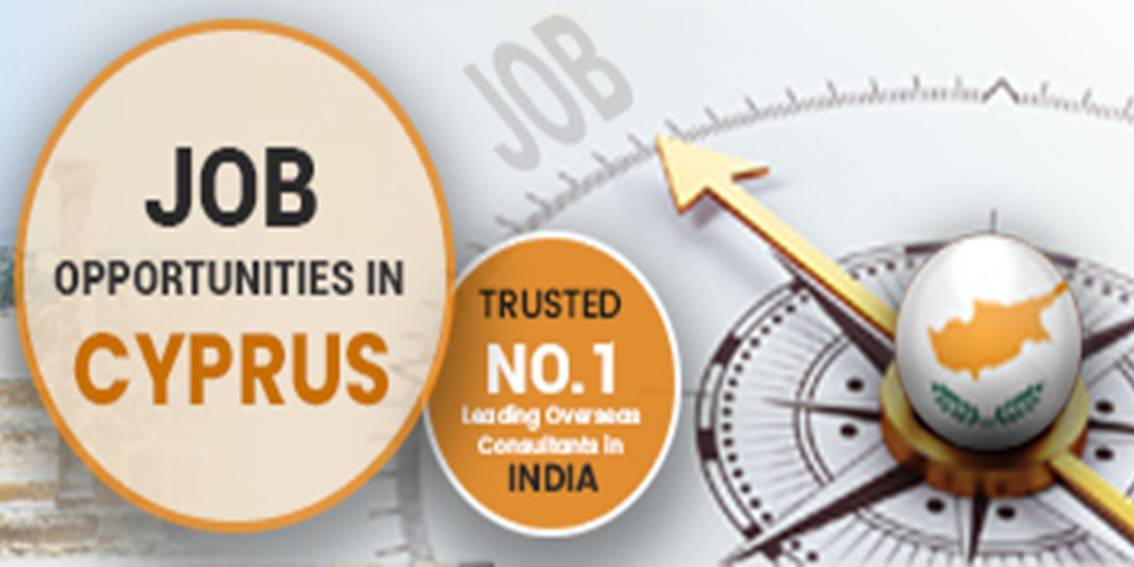Comprehensive Guide to Job Hunting in Cyprus
Looking for a Job in Cyprus? Cyprus, a Mediterranean gem known for its stunning beaches, vibrant culture, and strategic location, offers a range of job opportunities for both locals and expatriates. Whether you’re planning to relocate or are already living on the island, here’s an extensive guide to help you navigate the job market in Cyprus.
1.Research the Job Market
Understanding the job market is crucial before you start applying. Here’s how to approach it:
Industries in Demand
Cyprus has several key industries that frequently seek new talent:
Tourism and Hospitality: Given the country’s appeal as a holiday destination, there are ample opportunities in hotels, resorts, restaurants, and tourism services.
Financial Services: Cyprus is a significant player in the finance and banking sectors, with numerous opportunities in accounting, auditing, and insurance.
Shipping: With one of the largest merchant fleets in the EU, the shipping industry in Cyprus is a major employer.
Information Technology (IT): The tech sector is growing, offering roles in software development, IT support, and cybersecurity.
Real Estate and Construction: The real estate market is booming, creating demand for professionals in construction, architecture, and property management.
Local Job Portals
Leverage local job portals that specialize in the Cypriot job market:
Kariera.com.cy: A popular job portal for various sectors.
Cyprusjobs.com: Lists a wide range of job opportunities across the island.
JobsCyprus.com: Focuses on jobs for English-speaking professionals.

Recruitment Agencies
Looking for a Job in Cyprus? Register with reputable recruitment agencies that can help match your skills with available positions:
GRS Recruitment: Specializes in financial services, legal, and IT jobs.
StaffMatters: Offers positions across a variety of sectors.
WorkForce Cyprus: Provides services to both job seekers and employers.
2. Tailor Your CV and Cover Letter
Your CV and cover letter are your first impressions with potential employers. Make them count by tailoring them to the local market.
Local Standards
Format: Keep your CV concise, ideally two pages, with clear headings and bullet points.
Content: Focus on relevant work experience and skills. Highlight any international experience if applicable, as it is often valued.
Personal Information: Include your contact details, but be cautious about adding too much personal information due to privacy concerns.
Language
English: While English is widely spoken, especially in business settings, knowing Greek can be a significant advantage.
Greek Version: If you’re proficient in Greek, consider providing a Greek version of your CV and cover letter.
3. Network
Looking for a Job in Cyprus? Networking can significantly enhance your job search process. Here’s how to build a robust professional network in Cyprus:
Professional Networks
Join Local Associations: Become a member of professional associations related to your field. This can provide valuable contacts and information about job openings.
Chambers of Commerce: Engage with local chambers of commerce, such as the Cyprus Chamber of Commerce and Industry, for networking events and opportunities.

Looking for a Job in Cyprus in Social Media
LinkedIn: Optimize your LinkedIn profile to attract Cypriot recruiters. Join industry-specific groups and participate in discussions to increase your visibility.
Facebook Groups: Several Facebook groups are dedicated to job hunting in Cyprus where employers post vacancies.
Events
Job Fairs: Attend job fairs, which universities and professional bodies regularly organize.
Industry Conferences: Participate in conferences and seminars related to your profession to meet industry leaders and potential employers.
4.Understand the Work Culture
Familiarizing yourself with the local work culture can give you an edge in the job market.
Work Environment
Hierarchy: Cypriot companies often have a clear hierarchical structure. Respect for seniority and authority is important.
Punctuality: Being on time for meetings and work is expected.
Work-Life Balance: Cypriots value a healthy work-life balance. While they work hard, there is also a strong emphasis on family and social life.
Language Skills
Greek: While many businesses operate in English, learning basic Greek can demonstrate your commitment and help in everyday interactions.
Language Courses: Consider enrolling in Greek language courses offered by local institutions or online platforms.
5. Legal Requirements
Navigating the legal requirements for working in Cyprus is crucial, especially for non-EU citizens.
Looking for a Job in Cyprus? Work Permits
EU Citizens: EU/EEA citizens can work in Cyprus without a permit. However, they must register with the local authorities upon arrival.
Non-EU Citizens: Non-EU citizens need a work permit. Employers typically sponsor this permit, which must be obtained before you start working.
Documentation
Qualifications: Ensure you have certified copies of your qualifications. Some professions may require your credentials to be recognized by Cypriot authorities.
References: Prepare references from previous employers. These can be crucial in the hiring process.
Identification: A valid passport or ID is essential. Keep multiple copies for different administrative processes.
6. Leverage Online Resources
Using online resources effectively can broaden your job search and increase your chances of finding the right opportunity.
Company Websites
Direct Applications: Visit the careers sections of companies you are interested in. Many organizations prefer direct applications.
Speculative Applications: If there are no current openings, consider sending a speculative application. This can sometimes lead to job opportunities not being advertised publicly.
Expat Communities
Forums and Blogs: Join forums and read blogs dedicated to expats living in Cyprus. These platforms often share job leads and advice on living and working in Cyprus.
Social Media Groups: Engage with expat communities on social media platforms for networking and support.
7. Prepare for Interviews
A successful interview can be a decisive factor in landing a job. Here’s how to prepare effectively.
Local Practices
Research Common Questions: Familiarize yourself with typical interview questions in Cyprus. These may include inquiries about your experience, skills, and why you want to work in Cyprus.
Cultural Etiquette: Be polite and respectful. A firm handshake and good eye contact are important.
Dress Code
Professional Attire: Dress appropriately for the industry. For corporate jobs, a business suit is expected. For more casual industries, smart casual may be acceptable.
Grooming: Ensure you are well-groomed, as first impressions are crucial.
8. Consider Temporary Work
Temporary or part-time work can be a great way to get started, especially if you’re new to Cyprus.
Internships
Gain Experience: Internships can provide valuable local experience and help you build a professional network.
University Programs: Check with local universities for internship programs, which are often open to international candidates.
Part-time Jobs
Supplement Income: Part-time jobs can help supplement your income while you continue your job search.
Flexibility: These positions often offer flexible hours, allowing you to attend interviews and networking events.
9. Learn About the Cost of Living
Understanding the cost of living in Cyprus is essential for making informed decisions about job offers and salary negotiations.
Expenses
Housing: Rent varies significantly between cities and rural areas. Nicosia and Limassol are generally more expensive than other regions.
Utilities: Consider costs for electricity, water, and internet. These can add up, especially in summer when air conditioning is frequently used.
Transportation: Public transport is limited, so owning a car might be necessary depending on your location. Factor in the cost of fuel and maintenance.
Groceries and Dining: Prices for groceries and dining out are generally reasonable but can vary. Explore local markets for more affordable options.
10. Stay Positive and Persistent
The job search process can be challenging, but maintaining a positive and persistent attitude can make a significant difference.
Patience
Time-Consuming: Finding the right job can take time. Stay patient and keep applying to suitable positions.
Learning Opportunity: Treat each application and interview as a learning experience. Adjust your approach based on feedback.
Follow Up
Post-Interview: After interviews, send thank-you emails to express your appreciation and reiterate your interest in the position.
Application Status: Politely follow up on the status of your applications if you haven’t heard back within a reasonable timeframe.
Additional Tips – Use Job Alerts
Automation: Set up job alerts on job portals and company websites to receive notifications about new openings matching your criteria.
Professional Development
Courses and Certifications: Enhance your skills and qualifications through online courses and certifications relevant to your industry.
Workshops: Attend workshops and seminars to stay updated with industry trends and enhance your professional skills.
Freelancing and Remote Work
Consider Alternatives: Explore freelancing or remote work opportunities, especially if your field supports such work arrangements. Websites like Upwork, Freelancer, and Remote. co can be valuable resources.
Volunteering
Gain Experience: Volunteering can provide local experience, enhance your CV, and help you build a network.
Local Organizations: Look for volunteering opportunities with local NGOs, charities, and community groups.
Conclusion
Job hunting in Cyprus requires a well-rounded approach that includes understanding the local job market, tailoring your application materials, networking, and being aware of cultural and legal requirements. By leveraging online resources, preparing thoroughly for interviews, and considering temporary work options, you can enhance your chances of finding a rewarding job. Stay positive, persistent, and proactive in your search, and you’ll be well on your way to securing employment in Cyprus. Good luck!
You May Also Like This
Natural and Man-made Beauty: https://homeiscyprus.com/natural-and-man-made-beauty/




